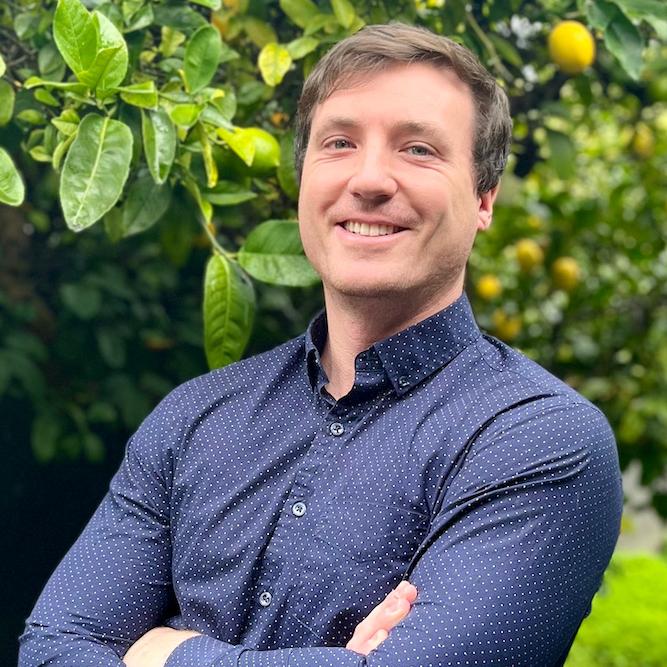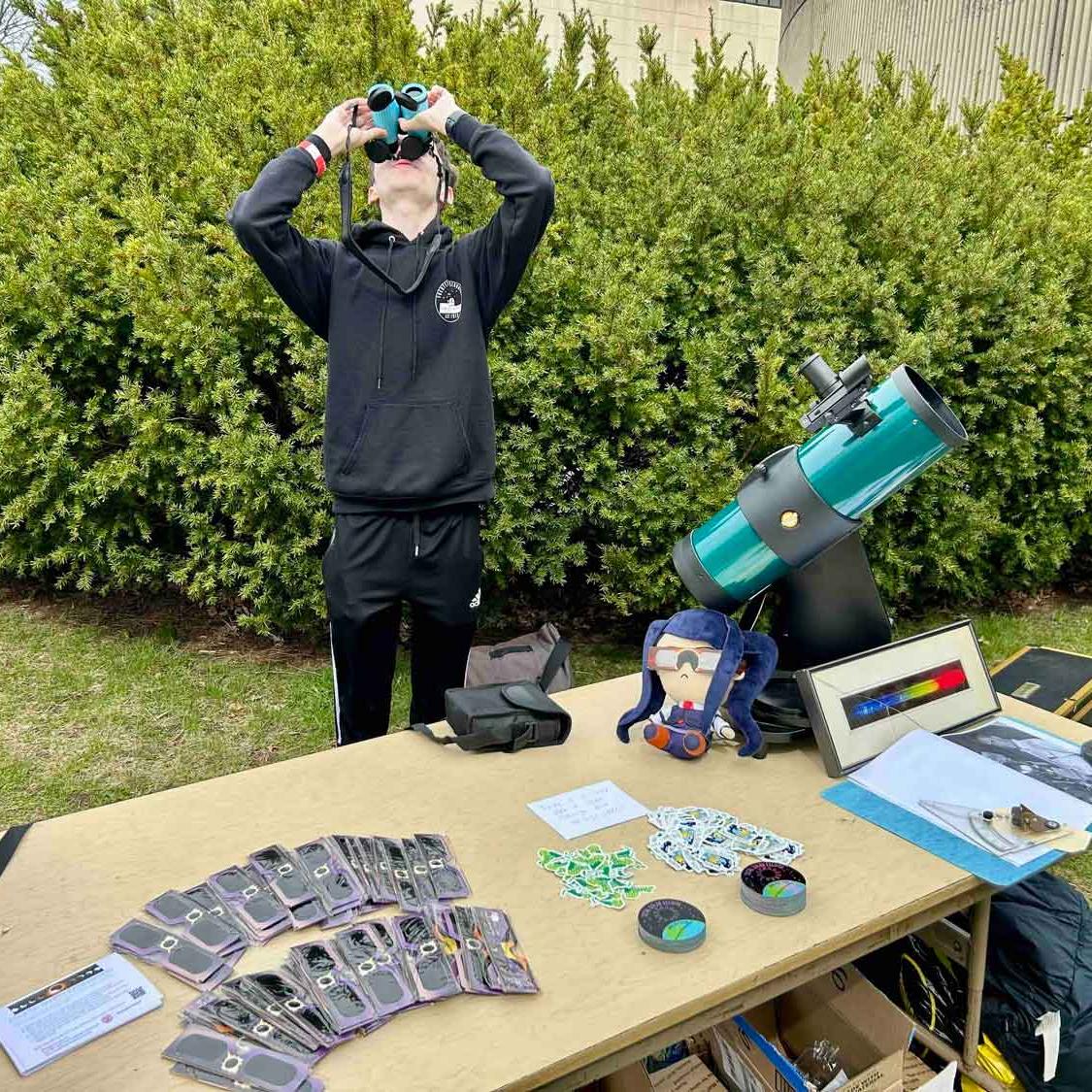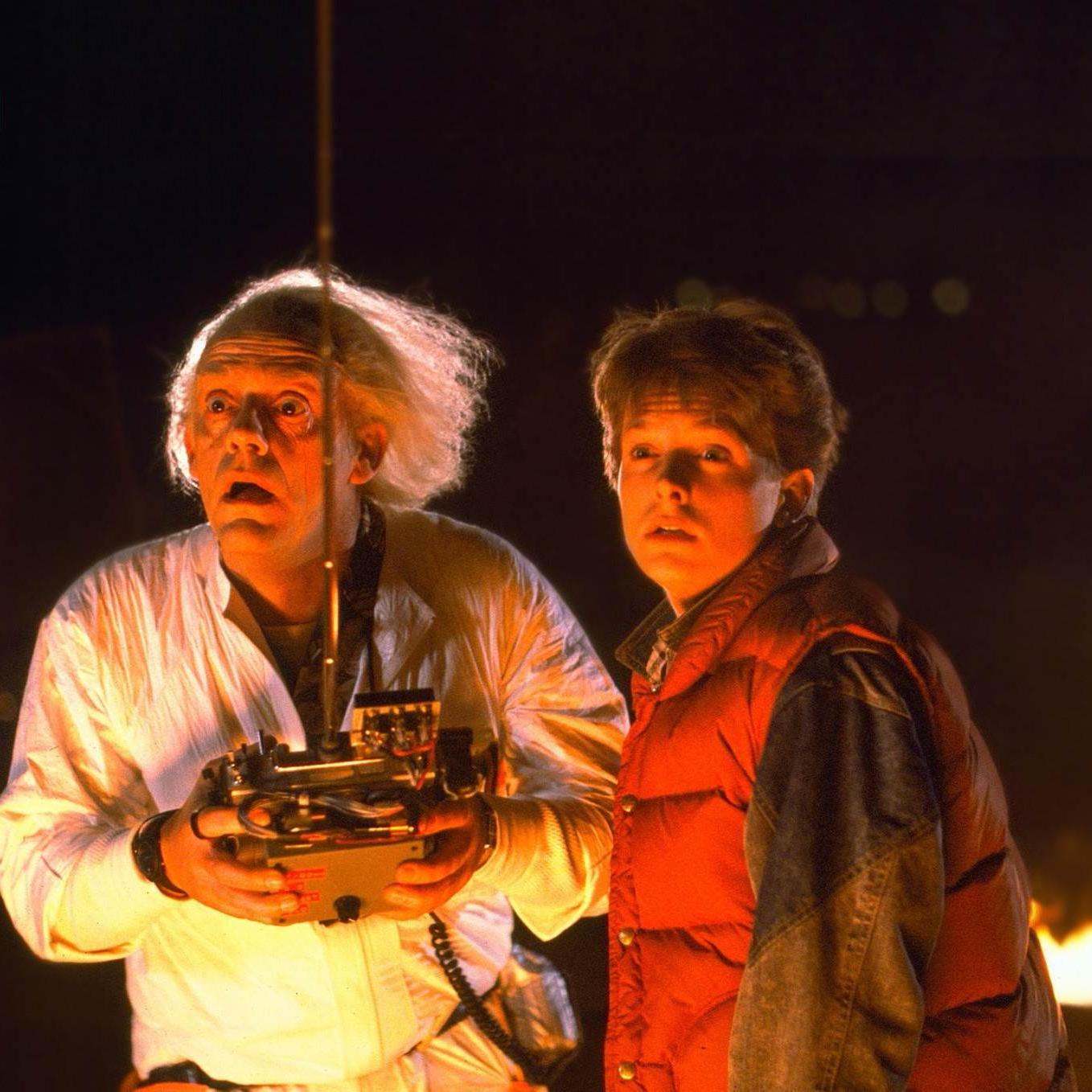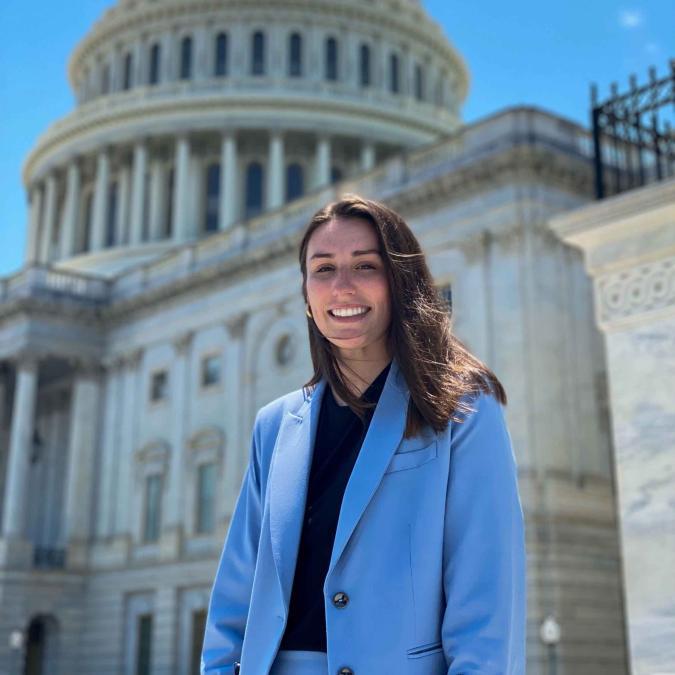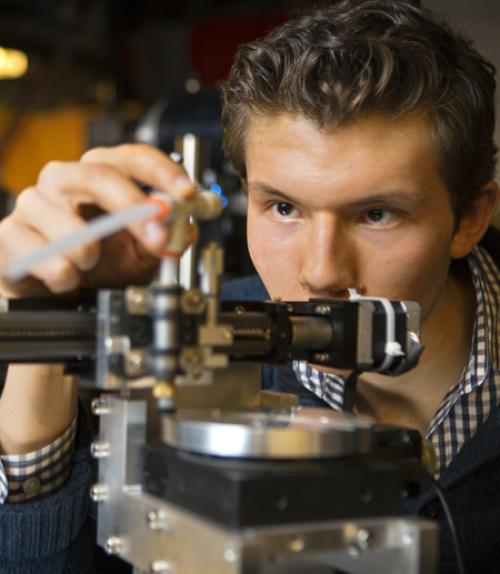Many freshmen and sophomores join faculty projects as soon as they can
As a precocious high school junior, Arthur Campello ’20, wanted to get some experience with his 3D modeling and coding skills outside of the classroom. Graduating a year early from Lansing High School, just outside of Ithaca, Campello contacted Cornell physics professor Jim Alexander, who connected him to staff at the Cornell High Energy Synchrotron Source (CHESS). They gave him a tour and Campello was lucky enough to get a month-long internship there while still in high school.
“I was in awe, thinking that people are playing soccer and they have no idea there’s antimatter right under them, traveling at nearly the speed of light,” Campello said of his early days there. “I was given a desk and this new very early stage project to work on for one month. But I just overstayed. I kept coming in.”
Campello is one of many Cornell students who latch on to research opportunities early in their college career, or even before college. Exposing undergraduates to research across the spectrum of fields — from sciences to social sciences to the arts and humanities — has long been a hallmark of the university, and many faculty open their doors to some students as early as they show interest.
“In my research, I’m trying to float these ridiculously thin films off of substrates, so I am always very proud to get one that kind of works,” said Carl Franck, associate professor of physics. “I’d been consulting with all kinds of experts all over the place to try to find a way to do this better, but then Arthur comes up with this new invention that is just remarkable.”
Franck turned out to be a professor who was using and planning for improvements in the early stage project Campello was working on: an inelastic x-ray spectrometer developed by Kenneth Finkelstein, staff scientist at the synchrotron. Franck is one of many researchers from Cornell, MIT, Princeton and other schools that Campello met during his time at the synchrotron.
“If you need to do something, you need to be able to think about how a theoretical machine would work and then build the machine yourself,” Campello said. “I learned a lot of machining.”
After being accepted to Cornell in the College of Arts & Sciences, Campello joined both of Franck’s research groups, which study how cells behave in liquids and use a new form of X-ray spectroscopy to study quantum matter. The biophysics research could have applications for cancer treatments, among other possibilities, Campello said.
Later that first semester, he also set up another meeting with Alexander, who told him about a collaborative project between Cornell, CERN (the European Organization for Nuclear Research), and other universities to build a forward pixel detector to be used at CERN. The detector is complicated for many reasons, including that it needs to be super light and super cold, Campello said.
“Professor Alexander said we need someone who can help put the machine together,” Campello said, adding that he was the only freshman at one of the meetings, which was mostly filled with postdoctoral students. “I’ve learned not to say I’m a freshman,” he said with a smile. “It discredits me a bit. But if someone asks, obviously, I’m not going to lie.”
Now, Campello works with both the Alexander and Franck groups. He also has an interest in economics.
There are risks when faculty involve students in research as freshmen or sophomores, Franck said. They might neglect their studies if they find research so compelling or fail to explore all of their research options if they get pigeonholed into one lab or group. But faculty keep a close eye to make sure their students are balancing their priorities.
“The most important thing around here is Arthur,” Franck said. “I sometimes wonder who will get this brilliant young man: Will he be trying to solve humanity’s problems or making wonderful discoveries in science?”
Joining the BABY lab
For Soumeeka Koneru ‘20 and Megan Waller ’20, their research time is spent in the lab of Michael Goldstein, associate professor of psychology and director of the Behavioral Analysis of Beginning Years (B.A.B.Y.) Lab.
Koneru and Waller both study social learning and communicative development in human infants, as well as vocal learning in songbirds, researching how infants learn to speak and how songbirds learn to sing through socialization and interaction with their parents.
Koneru has begun her work by learning how to code videos of human infants and by calling potential participants to gauge their interest in being part of the lab’s work.
“I really like the dynamic of the lab,” said Koneru, who plans to major in psychology. “I’ve always been interested in human development, developmental psychology and cognitive science and so the lab is a mixture of all of my interests.”
Koneru said her biology research in high school prompted her to seek out research opportunities as soon as she came to Cornell and the experience in Goldstein’s Lab has helped her define her research interests.
For Waller, who was looking to be more involved on campus, her psychology classes were some of her most enjoyable so she pursued research in that field.
Mapping out the behavioral patterns of birds by watching bird videos and coding these behaviors are some of the memorable experiences she has had in the Lab.
“It’s really involved,” Waller said. “We have lab meetings every week where we discuss research papers and so this lab has been a great introduction to the discipline of psychology and to academia.”
Studying China’s dining industry
Yibo Sun ‘19 began work as a research assistant for the Cornell Institute for Chinese Economic Research (CICER) in the summer after her freshman year, where she studies economic growth in China and explores her interest in economic modeling.
A double major in computer science and economics, her interest in economics emerged after taking advanced placement economics courses in high school. “Even though I only learned the very basics of economics before college, I found topics in economics and the idea of understanding complexities of society with precise mathematical models very interesting,” she said.
After deciding on an economics major during her freshman year, Sun consulted her advisor Panle Jia Barwick, associate professor and co-director of CICER, about pursuing research opportunities with her. “I looked for research opportunities in my freshman year because I like reading and thinking about economics,” Sun said. “I wanted to know how to study a specific topic in depth and what it is like to do economics research.”
She began thinking about adding a second major in computer science after taking an introductory course during her freshman year that piqued her interest. Her work with the institute allows her to more applicably combine both of her interests.
“I have definitely benefited a lot from my CS skills when I need to write or read code for the research or learn a new programming language or software,” she said.
The institute aims to become “a world-renowned hub for rigorous and impactful economic research on China.” Sun is one of just three undergraduate students who are currently doing research for the institute.
Born and raised in China, Sun is gathering data on the dining industry in China from 2011 to 2016, and hopes to then aid in analyzing how competition and regulation affect both performance and market structure in that sector.
Sun said her research and coursework have confirmed her interest in applied economics, which she plans to continue studying in graduate school, and also prepared her for the rest of her college studies.
“I have a more concrete plan of math and economics courses to take and skills to develop for the rest of my undergraduate studies,” she said. “I feel very fortunate to be able to be involved in research so early.”

